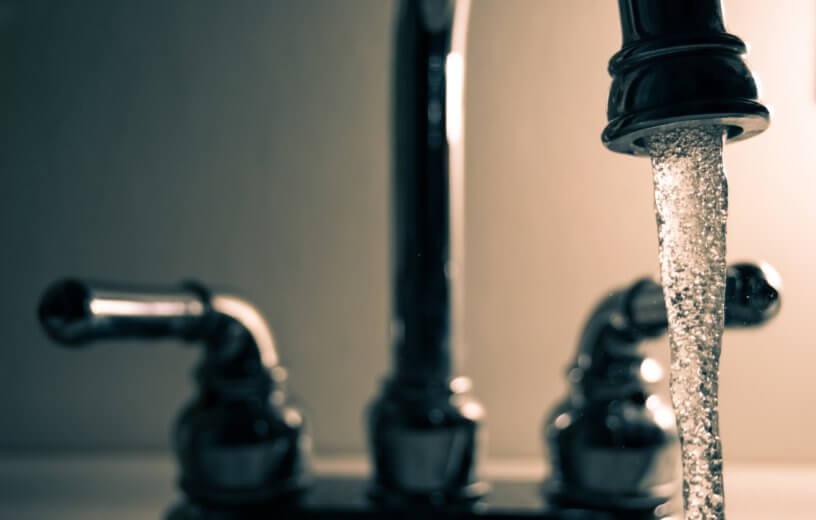LOS ANGELES — Pregnant women who drink tap water containing high levels of lithium are more likely to have children with autism, a new study warns. Researchers analyzed data from Denmark and found that mothers-to-be drinking water with the highest lithium levels were almost 50 percent more likely to have autistic children.
The team from UCLA found that the higher the lithium levels in the water supply, the more likely women were to give birth to babies with autism. Study authors warn that lithium levels in water could become more widespread in the near future due to lithium battery use and disposal in landfills — which could lead to an increase in developmental disabilities such as autism.
Researchers say this is one of the first ever studies to identify naturally-occurring lithium in water as a potential risk factor for autism. The team studied data collected from Denmark over 16 years, between 1997 and 2013. They chose to use the Danish data due to the country having the lowest consumption of bottled water in Europe, meaning most of the population drinks tap water.
Denmark’s water supply is among the cleanest around
Denmark also has a robust system for measuring trace metals and other contaminants in their water supply. Lithium is among several naturally-occurring metals commonly found in water supplies.
The American researchers estimate lithium levels in Denmark’s water supply to be in the “low to moderate” range in comparison to other countries. The Danish data analyzed lithium levels in 151 public waterworks in the country, the water supply of around half the entire country’s overall population. Researchers used address information from Denmark’s civil registry system to identify which waterworks supplied mothers’ homes at the time of their pregnancies.
Using another nationwide database of patients with psychiatric disorders, the researchers identified children born between 1997 and 2013, comparing 12,799 children diagnosed with autism against 63,681 children who were not. They also controlled for maternal characteristics, socioeconomic factors, and air pollution exposures — all of which display a link to an increased risk of autism in children.

Who has the highest risk of lithium exposure?
The study, published in the journal JAMA Pediatrics, found that as lithium levels in water supplies increased, so did the risk of children receiving a diagnosis of autism later on. When comparing the areas with the lowest recorded lithium levels with those with higher levels of lithium, those with the higher levels saw the risk of children developing autism rise by 24 to 26 percent.
The portion of the population identified with the highest levels of lithium in water supplies displayed a link to a near 50-percent rise in the risk of children developing autism. Researchers also found a similar relationship between increased lithium levels and a higher risk of autism diagnosis when they broke the data down by subtypes of autism disorder, such as Asperger’s syndrome and pervasive developmental disorder.
Additionally, they found the association between lithium levels and autism risk was slightly stronger for those living in urban areas compared to smaller towns and rural areas.
“Any drinking water contaminants that may affect the developing human brain deserve intense scrutiny,” says lead study author Beate Ritz, MD, PhD, professor of neurology in the David Geffen School of Medicine at UCLA and professor of epidemiology and environmental health at the UCLA Fielding School of Public Health, in a media release.
“In the future, anthropogenic sources of lithium in water may become more widespread because of lithium battery use and disposal in landfills with the potential for groundwater contamination. The results of our study are based on high-quality Danish data but need to be replicated in other populations and areas of the world.”
Lithium is actually a mental health treatment
Due to lithium’s mood-stabilizing effects, some lithium compounds have been widely used for years as a treatment for depression and bipolar disorders. However, there has already been debate about whether pregnant mothers should take these drugs amid an increasing association with a higher risk of miscarriage and cardiac anomalies or defects in new-born babies.
Prof. Ritz, whose research focuses on how environmental exposures influence neurodevelopmental disorders and neurodegenerative diseases, says she decided to examine the possible association between lithium and autism after finding there had been little research in humans about how lithium affects brain development. She found that some experimental research indicated lithium could affect an important molecular pathway involved in neurodevelopment and autism.
Co-author Dr. Zeyan Liew of Yale University School of Public Health adds the study is important because prior findings from Denmark using high-quality medical registry data have already shown that ingestion of chronic and low-dose lithium from drinking can influence the occurrence of adult-onset neuropsychiatric disorders. However, no previous study had yet been performed to assess whether lithium from drinking water consumed by pregnant women affects their child’s neurodevelopment.
South West News Service writer James Gamble contributed to this report.


This’ll enable local governments to increase utilities costs by removing lithium.
Living in the developed world is a risk factor for autism. Why do rural African and Russian children look so happy and sociable despite them living in vastly different climates?